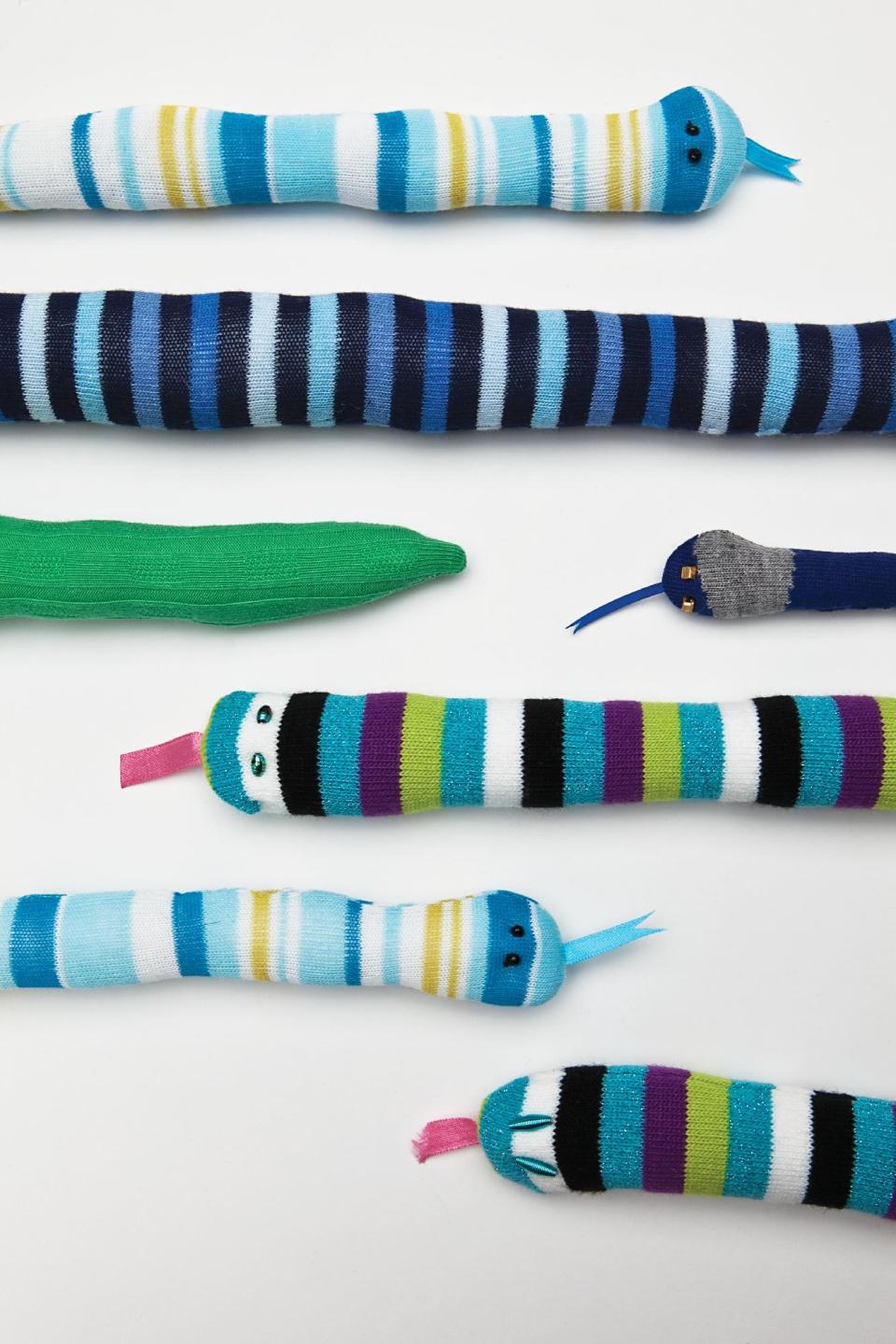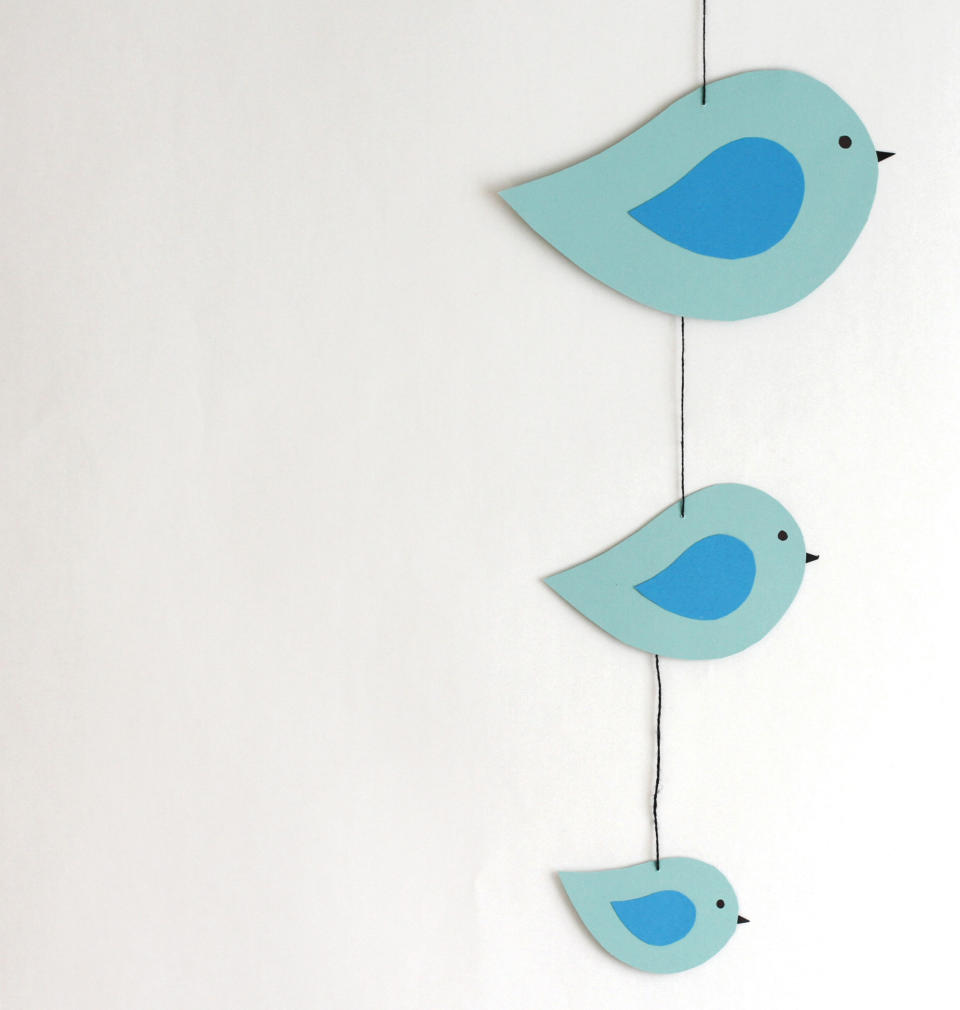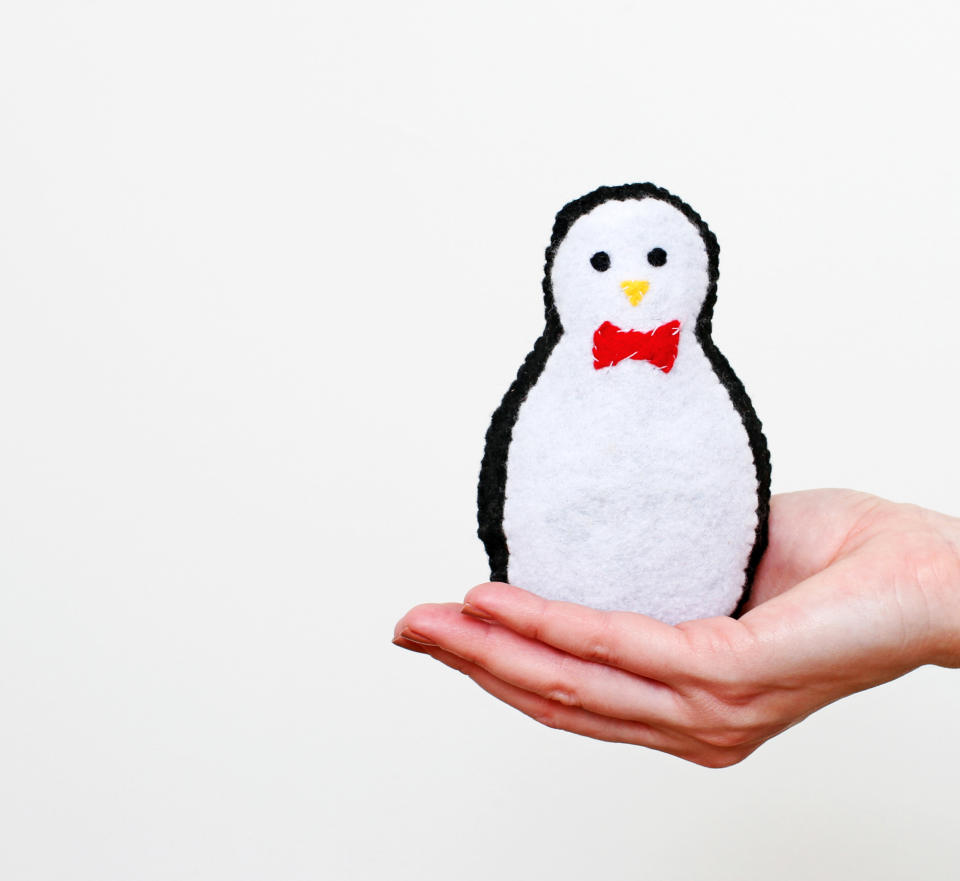Holiday doldrums can spark kids' creativity
It's inevitable during the holiday season: Kids get bored. But the doldrums are just the thing for unleashing children's creativity.
Give them a few ideas and supplies, and step out of the way.
Here, three crafts authors offer ideas for turning the blahs into hurrahs.
___
SOCKS
Brenna Maloney, a Washington, D.C., mother of two, is the author of three sock-project books, including the new "Sock It To Me" (Stash Books, 2012).
She turned to sewing with stretchy socks five years ago to offset job stress. Replicating a favorite sock bunny that her mother had made her when she was a girl, Maloney then turned to crafting snakes, mice, sea creatures — and, more recently, evil clowns and snowman assassins.
Some of her biggest fans are pre-teens, who pose new project ideas and ask for help. "I work with (the kids) and bring them in on it," says Maloney, now an editor at "National Geographic Explorer" magazine.
For kids who know how to use a sewing machine or would like to learn, Maloney suggests starting with a snake, turtle or starfish; the snake project is posted at Maloney's website, www.brennamaloney.com .
"Think about the sock and how it's shaped . turn it and twist it," Maloney says. She uses a sock's pattern, plus stuffing and embellishments to turn it into a creature.
___
STORIES
Emily K. Neuburger's crafting projects evolve around storytelling. A former teacher, she offers art and writing classes for children out of her Amherst, Mass., home.
The projects in her book "Show Me a Story" (Storey Publishing, 2012) and at her website, www.redbirdcrafts.com , encourage kids to play and experiment. She advises parents to leave out interesting, new supplies, such as pinecones and paint, for children to explore.
Help them "begin that process of imagining new worlds and telling stories," she says.
For the holidays, Neuburger suggests that kids can share a personal memory or retell the Christmas story using memory cards or story stones. Pictures from the story are glued to cardboard surfaces or small stones. Neuburger uses colored paper and fabric scraps to make simple images.
"Learning to know what to include in a story and what to leave out is an important storytelling skill," Neuburger says in her book.
She also recommends making a story grab bag: Allow kids to search through magazines, maps and catalogs, and cut out interesting words, numbers and pictures. Find other images online. Also, kids can draw, paint or stamp their own images.
Glue these story-telling prompts to cardstock (or cereal-box cardboard). Neuburger follows with Mod Podge to seal the images, but this step can be skipped.
After the images dry, place them in a bag. From there, children can pull cards to build a story together. It can feel like a game, she says.
"That element of the unknown and the randomness — kids love it," says Neuburger. "They have to work with it. There's humor."
___
ANIMAL TEMPLATES
If they can wield a pair of scissors, children can make the cute characters in Sarah Goldschadt's book, "Craft-A-Day" (Quirk Books, 2012). It provides a crafting motif for each week of the year, and a simple paper cut-out or small felt object each day. There's a new iPad app for downloading templates and instructions.
The animal patterns, including a penguin, dog and raccoon, are most likely to grab a child's imagination. After tracing a template, kids can use it to make ornaments, cards, magnets, gift tags, mobiles and cake toppers.
Goldschadt, a graphic designer, recently shared some of her crafts with teenagers in an after-school program at a library near her New York home, and was impressed by the kids' dedication to finishing their owl and bird ornaments.
"It was the most quiet they'd ever been," she says, "and they stayed longer to get it done."
Goldschadt's website: www.sah-rah.com





